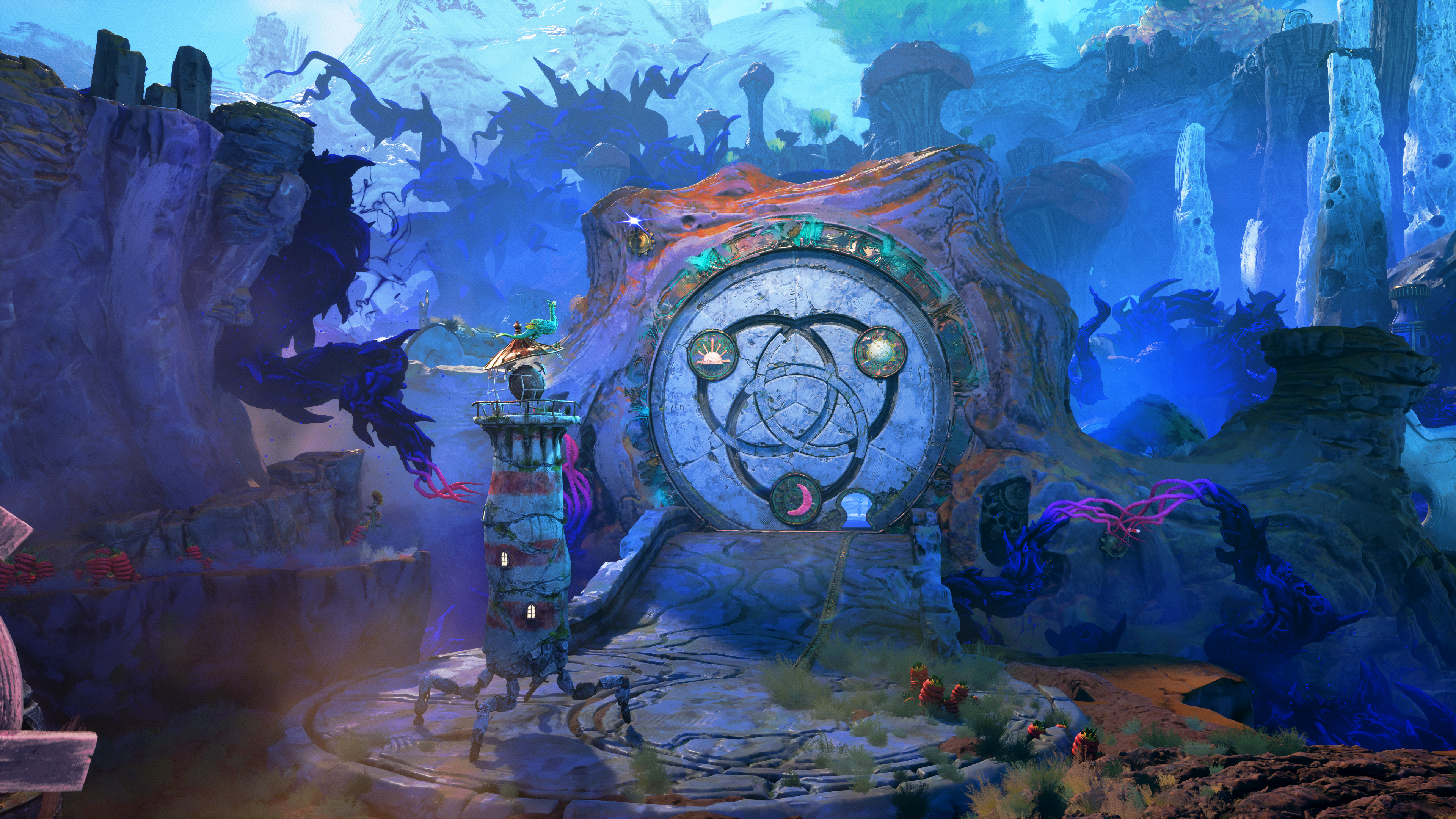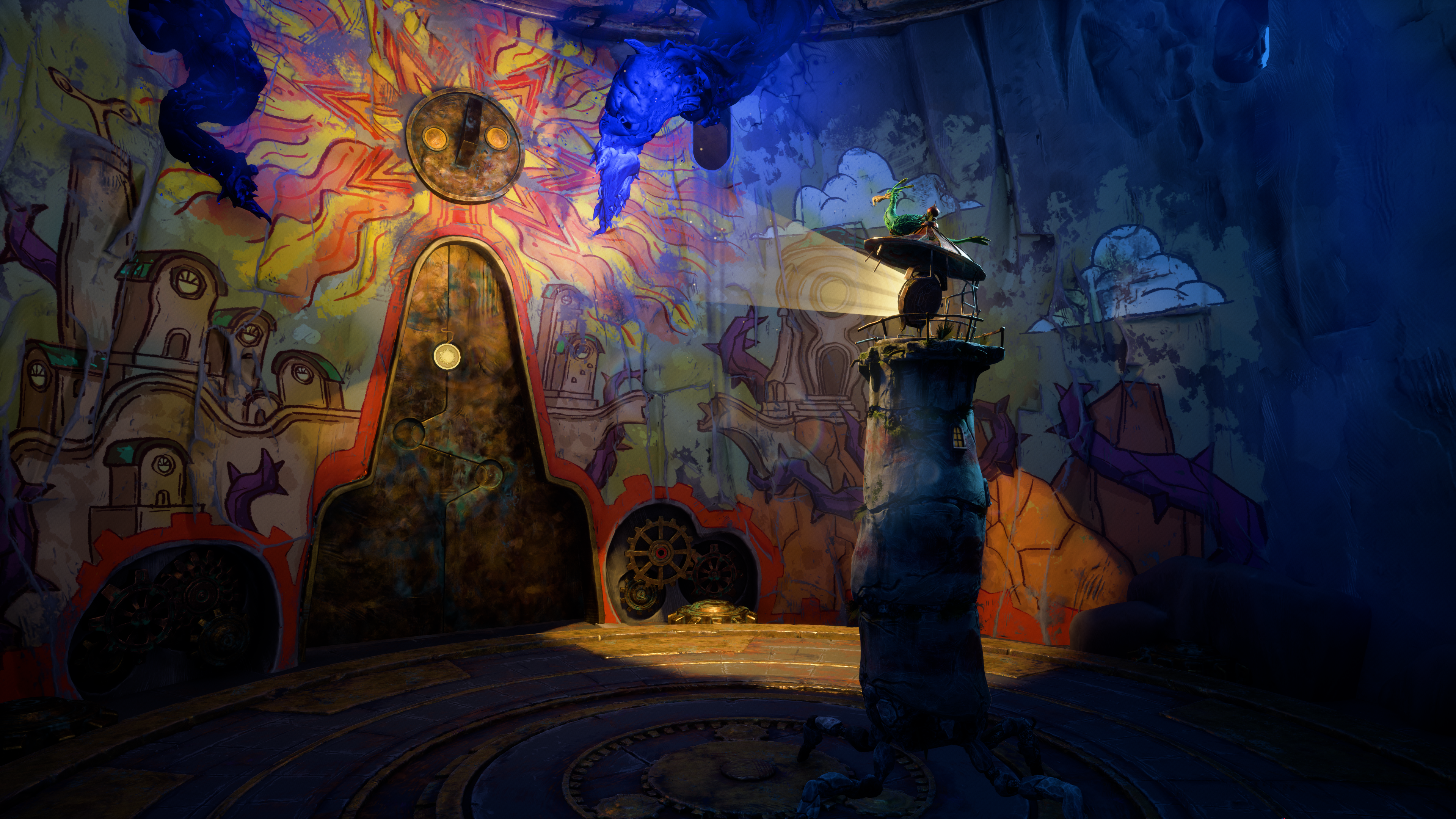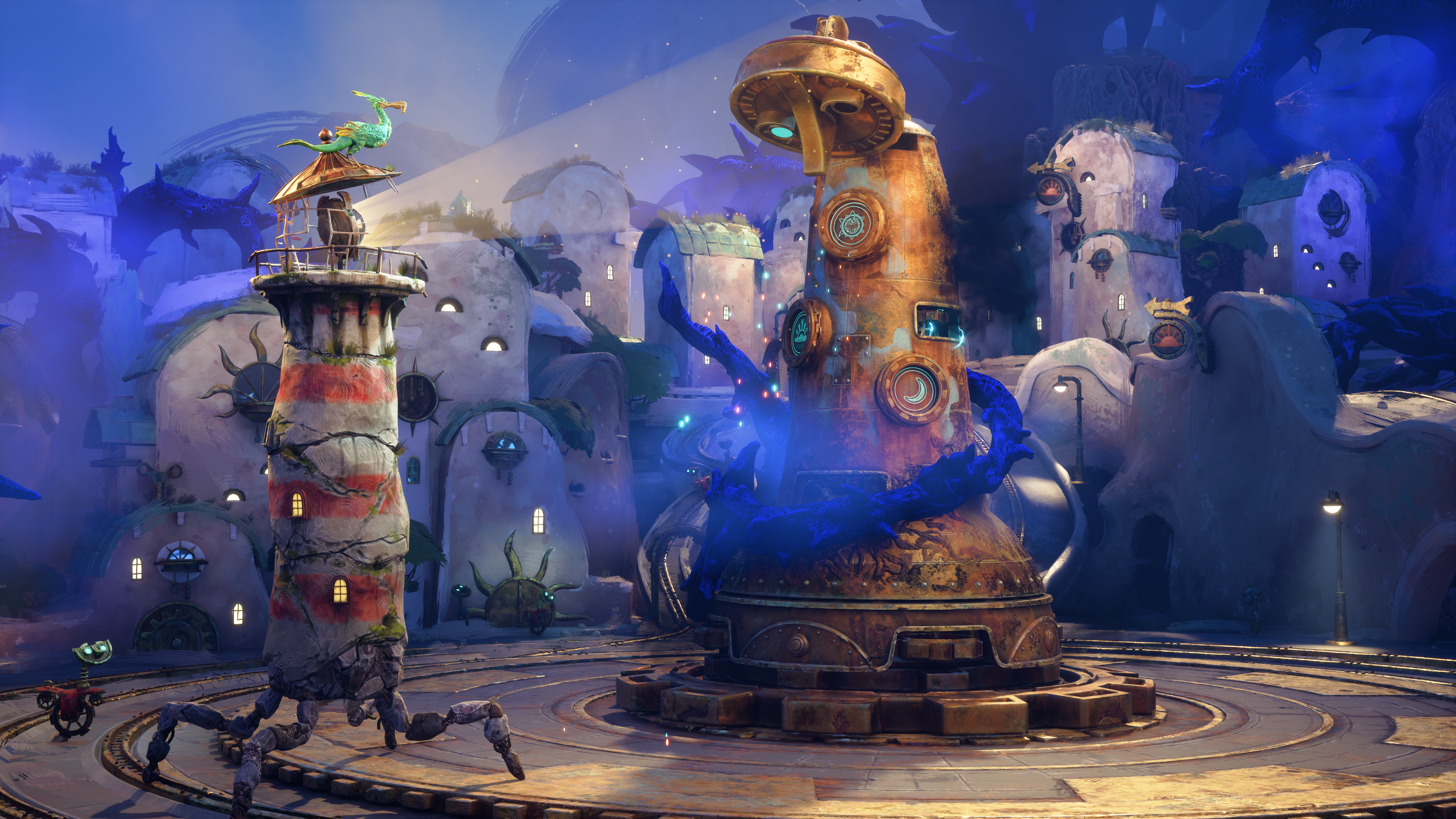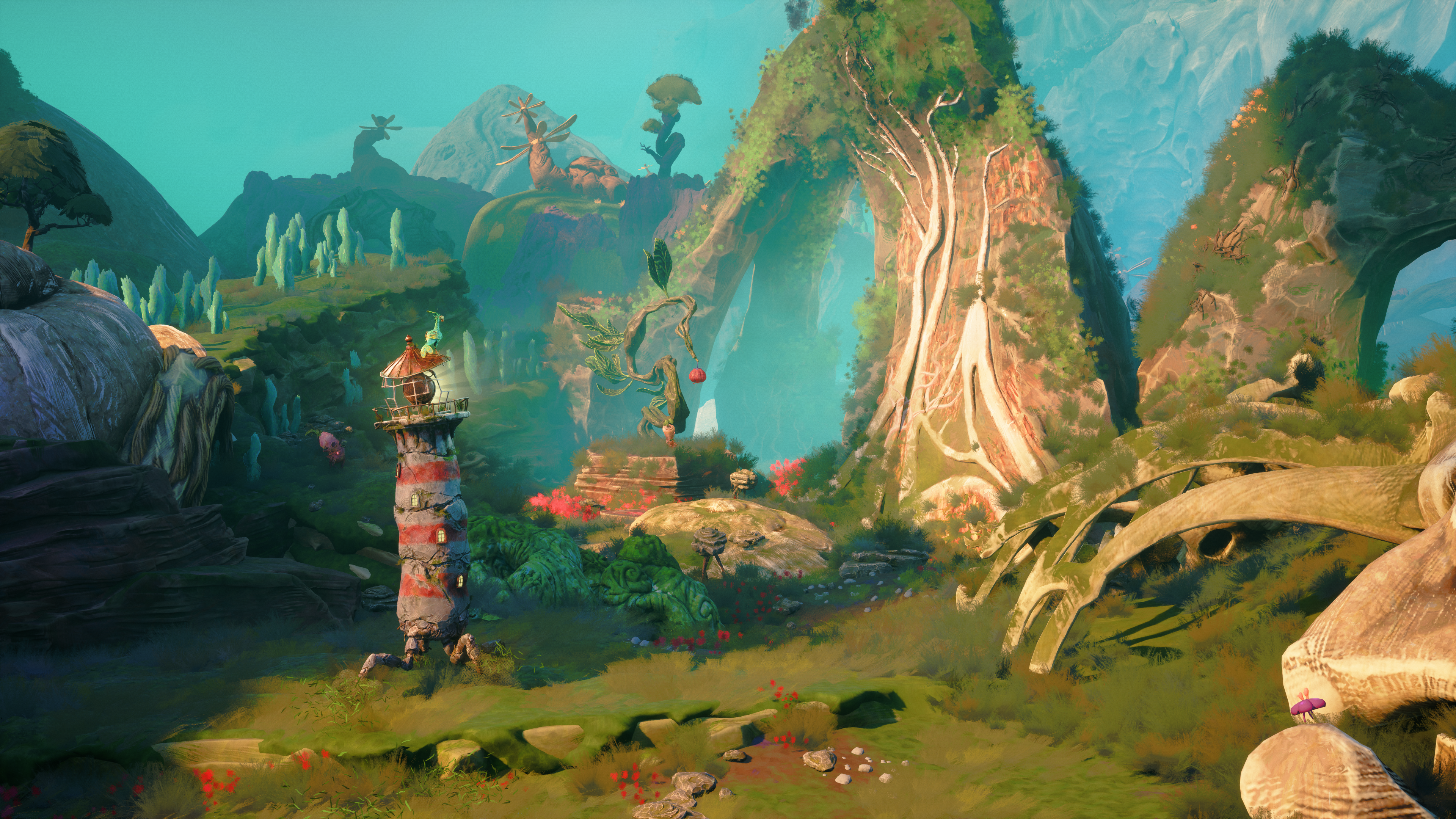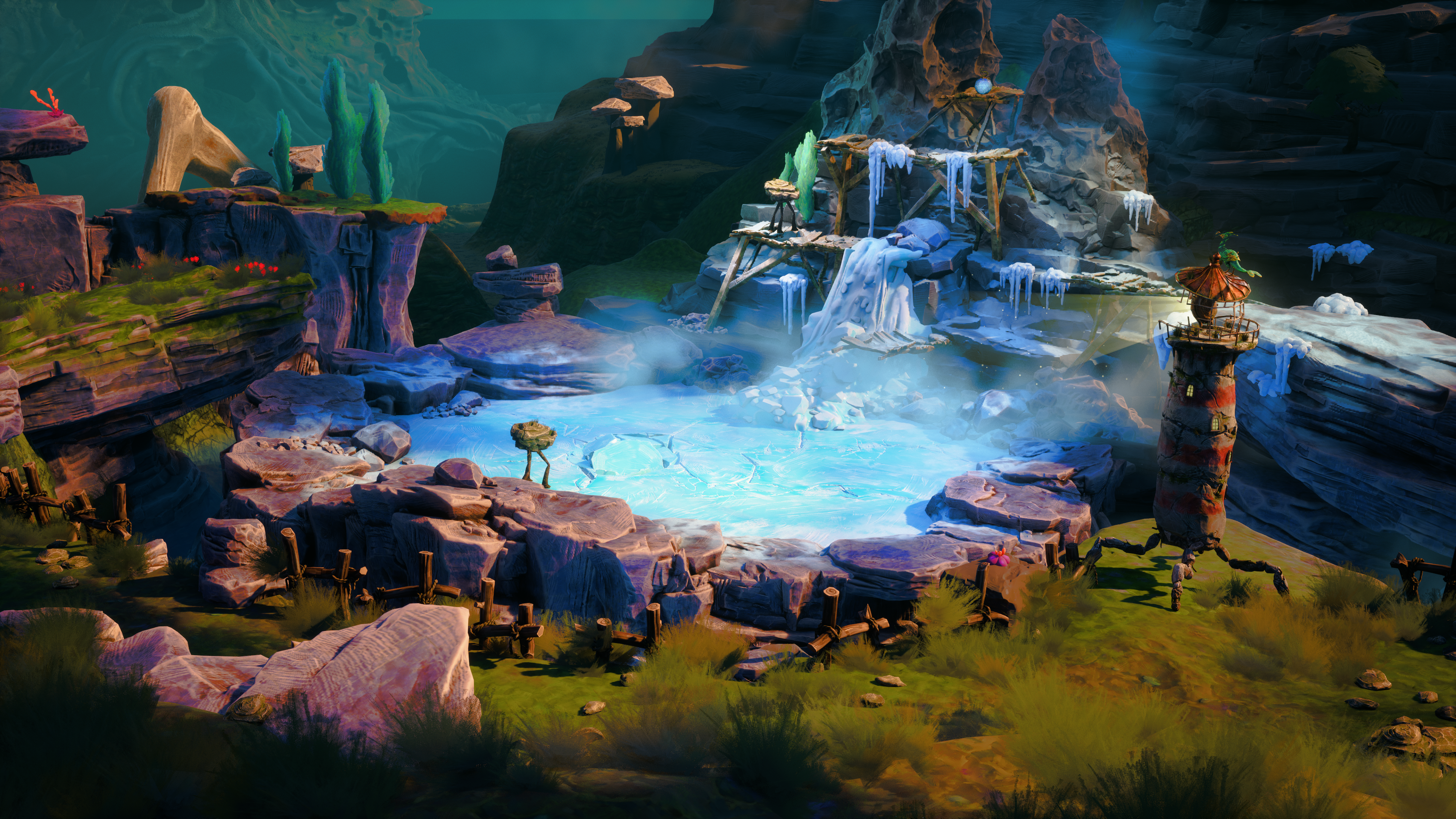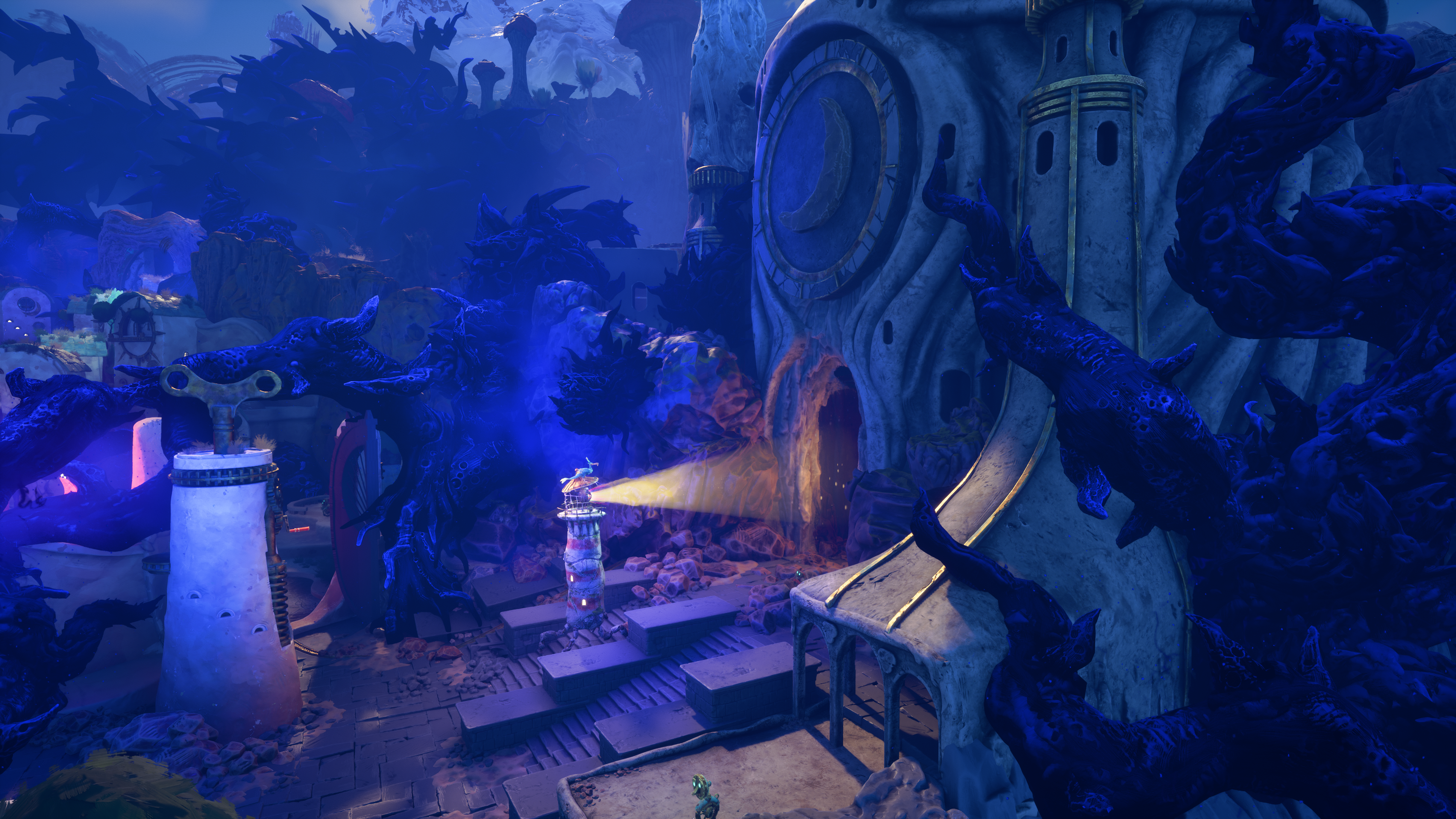Under Microsoft, Double Fine has made its weirdest game yet—and this is only the beginning: 'We can take more risks'
The studio has "multiple new projects" in development, and Xbox GamePass is the key to its future.
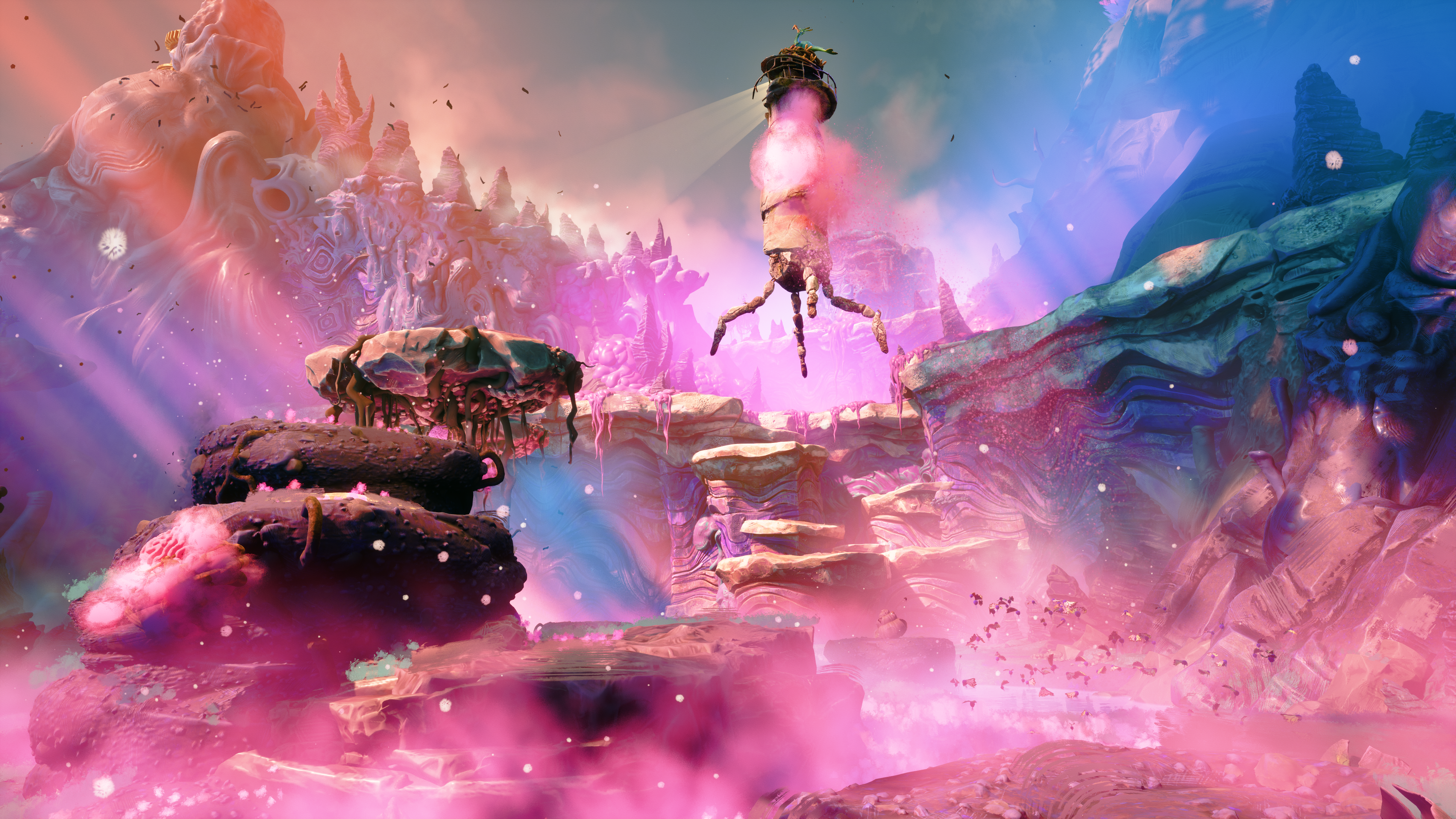
Keep up to date with the most important stories and the best deals, as picked by the PC Gamer team.
You are now subscribed
Your newsletter sign-up was successful
Want to add more newsletters?

Every Friday
GamesRadar+
Your weekly update on everything you could ever want to know about the games you already love, games we know you're going to love in the near future, and tales from the communities that surround them.

Every Thursday
GTA 6 O'clock
Our special GTA 6 newsletter, with breaking news, insider info, and rumor analysis from the award-winning GTA 6 O'clock experts.

Every Friday
Knowledge
From the creators of Edge: A weekly videogame industry newsletter with analysis from expert writers, guidance from professionals, and insight into what's on the horizon.

Every Thursday
The Setup
Hardware nerds unite, sign up to our free tech newsletter for a weekly digest of the hottest new tech, the latest gadgets on the test bench, and much more.

Every Wednesday
Switch 2 Spotlight
Sign up to our new Switch 2 newsletter, where we bring you the latest talking points on Nintendo's new console each week, bring you up to date on the news, and recommend what games to play.

Every Saturday
The Watchlist
Subscribe for a weekly digest of the movie and TV news that matters, direct to your inbox. From first-look trailers, interviews, reviews and explainers, we've got you covered.

Once a month
SFX
Get sneak previews, exclusive competitions and details of special events each month!
During a behind-closed-doors look at Double Fine's latest game Keeper, I'm struck that this is probably the studio's strangest game yet. With a back catalogue that includes everything from psychic summer camps to living Russian dolls, that's really saying something.
It stars a living lighthouse—tottering about on tree root legs—who travels through a post-apocalyptic world with a mutant bird friend. Focusing its light beam on parts of the environment causes changes, such as making a rock creature withdraw its limbs and slam down into the ground, or forcing back shadowy tentacles.
That makes for some light (ahem) puzzle-solving and exploration, elevated by the surreal surroundings. In one section, the lighthouse is able to use its beam to control the flow of time, reversing back to past events or fast-forwarding to the future. In another, it gets festooned with sticky candy floss that allows it to float through the air across bubblegum fields.
When Double Fine was acquired by Microsoft back in 2019, Tim Schafer assured fans that the deal wouldn't impact on the kind of projects the studio made going forward. A natural fear at the time was that being part of Xbox would force the developer to become more mainstream and lose its indie charm. But the truth, apparently, is the opposite: it has had an impact on how Double Fine works, but in the sense of letting it get even weirder, not more buttoned up.
According to James Spafford, director of marketing and communications at Double Fine, the key is GamePass.
"We can be a little bit more creative. We can take more risks. We can now make games for GamePass," he says. "Where before we really needed people to buy those games, now we can put them onto a platform where people can just try them out, and if they don't like them, it's fine. Or they might like them!"
That focus on GamePass ensures that Double Fine's more niche experiences are much less in competition with more mainstream, broad appeal offerings.
Keep up to date with the most important stories and the best deals, as picked by the PC Gamer team.
"People feel more able to just experiment, maybe pick up something a little bit weirder," says Spafford. "You don't have to choose between a game you know you're going to like versus 'I'm not sure about this lighthouse thing'. In that situation you might lean the other way, but when there's no downside to just trying it out, it frees us up."
And he confirms that the studio has "multiple new projects" in development, embracing that freedom with their own strange ideas.
It's lovely to see a studio able to embrace its creativity like this, rather than having to tamp it down. But while it should certainly enable more unique and original games, I wish I was a bit more convinced it would lead to better ones.
An issue I've always had with Double Fine is that its ideas are often stronger than its execution. Games like Rad, Stacking, Brütal Legend, and Iron Brigade have fantastic elevator pitches and tons of personality, but often very undercooked mechanics, leading to quickly diminishing returns.
From what I've seen, Keeper seems like the most extreme example yet of that dichotomy. Visually and conceptually it's like nothing else I've seen, but what you actually do in the game is more lightweight than ever, with only very simple puzzles and gentle wandering to tie its surreal vistas together.
It's certainly ok for a game to just be a charming mood piece and no more, but it feels like the indie gaming space is already awash with those. In this case it's hard not to feel like all the playful exploration of the unusual concept has come at the cost of actually finding interesting things to do with that concept.
It's a brilliantly distinctive paintjob over the top of a pretty basic and familiar style of game. Even seemingly out there ideas like controlling time only facilitate simple puzzles you've seen before.
That said, it's also clear during the demo that Double Fine is holding back a little on showing too much of Keeper. Spafford strongly hints that there are dramatic twists and turns in the game that they're keen not to spoil, and hopefully those lead to the kind of wow moments I'm looking for.
If not… well, perhaps this even weirder era of Double Fine won't be for me, and that's okay. Despite my misgivings, I'll certainly take a future where the studio gets to throw out more unique and bizarre ideas than ever over one where it gets absorbed into the Microsoft machine and ends up in a basement making skins for Call of Duty. Or worse…

Formerly the editor of PC Gamer magazine (and the dearly departed GamesMaster), Robin combines years of experience in games journalism with a lifelong love of PC gaming. First hypnotised by the light of the monitor as he muddled through Simon the Sorcerer on his uncle’s machine, he’s been a devotee ever since, devouring any RPG or strategy game to stumble into his path. Now he's channelling that devotion into filling this lovely website with features, news, reviews, and all of his hottest takes.
You must confirm your public display name before commenting
Please logout and then login again, you will then be prompted to enter your display name.
